In this blog, Bhuvana N and Aditya K S argue that to achieve sustainable transformation of global food systems we need to promote systems thinking at all levels, viz., research, extension, education and policy.
CONTEXT
Initial research in agriculture has focussed on the reductionist approach: taking the complicated systems of agriculture, dividing it into manageable bits and then doing experiments on them. The reductionist approach mainly focussed on increasing the productivity of agriculture ignoring its linkage with society and environment. This has led to growth in food production and in increasing food productivity across the globe. However, this myopic focus on production has led to a negative state of affairs in the form of resource depletion and climate change. Gradually the focus has shifted towards sustainability in agriculture. ‘Sustainability’, a term coined in the 1990s, has since become a buzzword in both research and policy. Probably everyone, at the same time, agrees that agriculture has become increasingly unsustainable. This shows how difficult it is to make agriculture sustainable. Agriculture has its linkage with society and environment, forming a complicated system with interlinkages within and across. Systems thinking has emerged as a problem-solving approach in agriculture, to address the complex problem of improving agricultural productivity within ecological boundaries. In this blog we explore the need for systems thinking in agriculture, and then introduce an innovative learning model focussed on sharing and co-creation of knowledge related to systems thinking in land management.
SUSTAINABLE DEVELOPMENT
Lindner (2016)[1] uses the concept of ‘Shadows’ – coined by Prof. To Pietschmann (2002)[2] – to explain the need for a holistic and inter-disciplinary approach for understanding sustainable development; every position has a negative side to it, which we can call as its ‘Shadow’. Take sustainable development for example. Reducing emissions for slowing down the pace of climate change is a position. Slowdown of economic growth and increase in poverty and inequity are its shadows. Making energy for irrigation costly is suggested as a remedy for over-extraction of groundwater. But on the flip side it will lead to reduction in food production and worsening of poverty, which therefore is its shadow. Since agriculture is a part of the larger systems comprising of society and environment, the need of the hour is to examine each position, its shadow both within and between the different subsystems, and then aim for those strategies that have largest systems level incremental benefits. This is the essence of Systems Thinking.
Consider the sustainability issues surrounding the global food systems. Recently released AR6 climate change 2021 report by the IPCC[3] has reiterated that possible climate futures in the light of climate change could have devastating and irreversible consequences. It is also established that the main contributor to climate change is anthropogenic activities, and one such is landscape management. About one-third of the greenhouse gas emission is caused by the global food systems. Food systems are also linked to loss in biodiversity and overexploitation of natural resources such as water and land. Despite the prevalence of malnutrition and hunger nearly 40% of the food produced is wasted, clearly highlighting that the current ways of managing our food systems is unsustainable. The interconnection between human welfare, climate change, food, land and water systems call for a systems perspective for sustainable transformation.
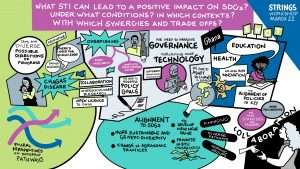
An Illustration by Raquel Duran summarising the discussions from a session at the STRINGS
[http://strings.org.uk/] Project Workshop: Perspectives and Policies to steer Science, Technology and innovation for the SDGs (28 Feb and 1 March 2022)
We cannot address any of the aforesaid global challenges in isolation without understanding the interconnections; for example, exclusive focus on achieving food security might put more pressure on water resources. At the same time, the interconnections between these systems offer a way to simultaneously address many global programs, provided one understands the synergies and the trade-offs between the different agricultural systems.
SYSTEMS THINKING
Food systems are very diverse, so are the linkages, synergies and trade-offs. The strategies for sustainably transforming the food systems require understanding these systems and regional level planning. Systems thinking is seen as a causal inference approach for problem solving, with a difference that we look for systems level outcomes, after considering the interlinkages between and across various subsystems. This involves describing or conceptualizing the whole systems, modelling the interdependencies, and identifying the causal effect of interventions in the systems. Systems thinking is important not only for researchers but also for extensionists and policy makers. It enables one to look beyond the disciplinary silos, synthesise and develop solutions which are better for the systems.
Unfortunately, agricultural education in India is yet to catch up in the area of improving systems thinking in students. Not discounting the importance of a reductionist approach for knowledge gain, the time is ripe to develop the systems thinking skill in students. With the development of computational capabilities and improved methods, it is possible to account for the complexities of systems in research. Though systems thinking is increasingly getting traction in the scientific world, knowledge on the approach and the tools are still scattered. One notable initiative in bridging this gap is the ‘interactive learning modules – synergies and trade offs in food, land and water systems hosted by Agro landscapes’ – a research project of CGIAR on Water, Land and Ecosystems (Box 1).
| Box 1: Agrolandscapes Agrolandscapes is a project funded by CGIAR Water, Land and Ecosystems, a research program for managing agro landscapes for greater impact (https://agrolandscapes.org/). The project is focussed on how the research across different CGIAR centres can help landscapes become sustainable and resilient. The project also looks at how interlinked global challenges, such as ending poverty, managing and reversing land degradation, water, food and nutritional security, halting biodiversity loss etc., can be addressed. The project aims to synthesize and integrate the learnings across CGIAR centres related to these challenges and strategies in different landscape approaches, and to create capacities through open discussion and reflection. The project hosts an interactive and free learning module on synergies and trade offs in food, land and water systems (https://agrolandscapes.org/tosa-page/home/). |
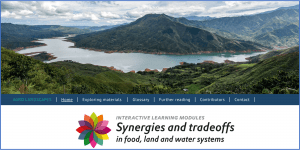
In the following sections, we explain the contents of the learning module.
THE LEARNING MODULE
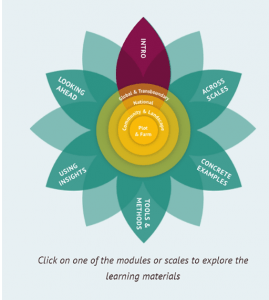 There are 6 learning modules:
There are 6 learning modules:
- Introduction;
- Across scales;
- Concrete examples;
- Tools & methods;
- Using insights; and
- Looking ahead.
Furthermore, the learning modules are also categorized based on levels – plot and farm; community and landscape; national and global or transboundary. Contents in each of the learning modules consist of blogs, interviews, summary of methods and case studies. There are also questions for reflection at the end of each learning module. The best thing about the learning modules is the quality of the contents that are contributed by experienced researchers on these topics. The modules do a great job in bringing together learning from different case studies, and initiatives from different parts of the world in making food systems more sustainable.
We particularly liked the module on methods and tools. Often it is difficult for early career researchers to decide on methods and tools that can be used to answer the specific research question in mind. Even in research papers, seldom is it discussed in sufficient length on why the authors have decided to use a particular method. In this learning module, all the relevant methods and scales are listed along with a brief description of what it is and how to use it, with a list of references. The website’s interactive design makes it easier to find what one is looking for. The questions at the end of modules help the learners to think through and self-assess. It also provides scope for readers to pose questions, contribute content on respective modules in the space provided under each module. The modules also provide an opportunity for networking.
WHO SHOULD INVEST TIME ON THESE MODULES?
These learning modules are very useful, particularly for researchers who are looking for a comprehensive review on sustainable management of food-land-water systems from a systems perspective. The learning modules provide a synthesis of learnings and challenges from different research efforts, and interventions in agro systems from across the world. This is useful to understand what has been already done, and what are the gaps in the knowledge where more research is needed. This is also useful in understanding what systems thinking entails and what the advantages of such an approach are. For instance, systems thinking prompts researchers to understand and account for the implications of their work on other sectors through interlinkages. When systems level impacts are considered, the value of research for policy formulation increases.
Further, system thinking is important for extension workers as well. It is commonly observed that the extension system often promotes different technological solutions without an iota of thought on the trade-offs, negative externalities and synergies. Systems thinking is a skill which needs to be taught in agricultural education as well as training programs, so that people can visualize the technological change beyond immediate outcomes.
The learning modules are also relevant for policy makers to help them understand what has worked in the past in different parts of the world and in replicating them, as well as in avoiding the bottlenecks faced by earlier efforts. Having said that, anyone who is interested in learning about sustainable food-land-water systems can gather a lot by going through the contents in the modules. In particular, these modules can help beginners who want to learn and take up their research work in the nexus of sustainable food-land-water systems (agro landscapes). Hopefully the contributors to this module may also be keen to discuss their insights with young researchers who are trying to explore this topic. Finally, the way this module is presented also provides great lessons for all those who are interested in developing online interactive learning modules on any topic.
ENDNOTE
To conclude, solving today’s challenges in global food systems needs an inter-disciplinary and systems level approach. The old school piecemeal approach to research will have little practical utility going forward. It is time that we incorporate systems thinking as an essential skill in the agriculture education and training curricula.
FootNotes
[1]https://enter.educagri.fr/fileadmin/user_upload/pages/Resources_publications/Proceedings_Prague_2016.pdf
[2] Pietschmann H. 2002. Eris & Eirene. Eine Anleitung zum Umgang mit Widersprüchen und Konflikten. Wien: Ibera.
[3] https://www.ipcc.ch/assessment-report/ar6/
 Bhuvana N holds a Ph.D. in Agricultural Extension from Professor Jayashankar Telangana State Agricultural University, Hyderabad. Her research interests include organizational ecosystems and effectiveness, social networks and technological change. She can be reached at bhuvanaditya7@gmail.com.
Bhuvana N holds a Ph.D. in Agricultural Extension from Professor Jayashankar Telangana State Agricultural University, Hyderabad. Her research interests include organizational ecosystems and effectiveness, social networks and technological change. She can be reached at bhuvanaditya7@gmail.com.
 Aditya K S is a Ph.D. Scholar at the Humboldt University of Berlin, Germany and a fellow of Netaji Subhas ICAR- International Fellowship. He is also a Scientist (Agricultural Economics) at the ICAR- Indian Agricultural Research Institute, New Delhi. His research interests include the impact assessment of agricultural technologies and natural resource economics. He can be contacted at adityaag68@gmail.com
Aditya K S is a Ph.D. Scholar at the Humboldt University of Berlin, Germany and a fellow of Netaji Subhas ICAR- International Fellowship. He is also a Scientist (Agricultural Economics) at the ICAR- Indian Agricultural Research Institute, New Delhi. His research interests include the impact assessment of agricultural technologies and natural resource economics. He can be contacted at adityaag68@gmail.com

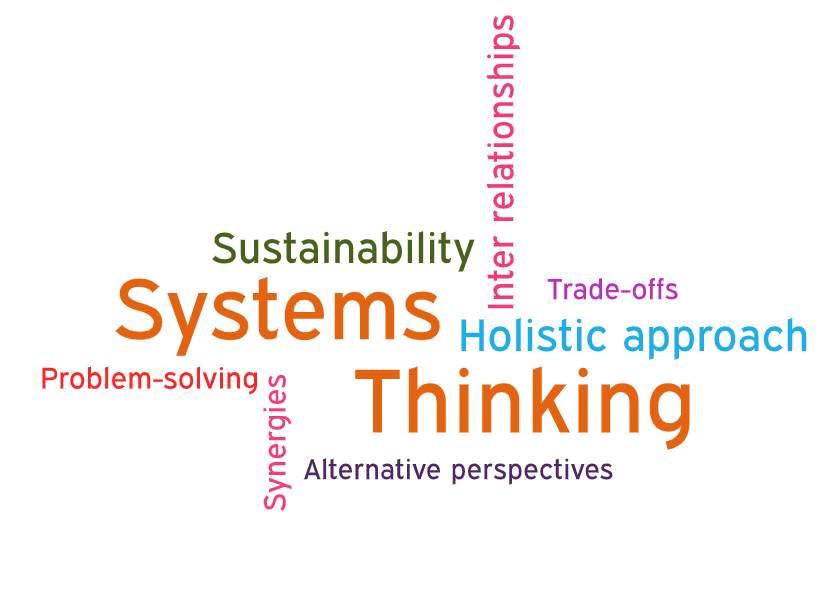
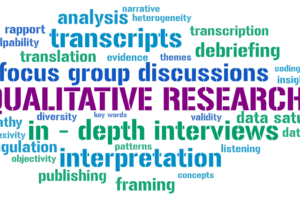
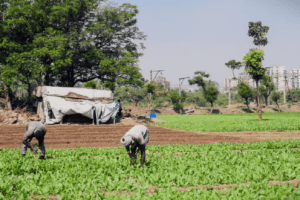

Add Comment